They Shall. Not. Pass!
The traditional publishing model hasn’t changed much since the introduction of paperbacks in the wake of the Second World War. [#1]
Hardbacks are the golden eggs-laying machine of this model. And the primary way that readers should buy their books is through the brick-and-mortar bookstore.
Paperbacks sell more units, but the margins are lower, so publishers strive always to present hardbacks as a premium product and sell premium titles in hardback first to squeeze the maximum out of the market.
Beneath a little froth of genuine excitement for new ventures, such as interactive books and, yes, eBooks, the publishing model is encrusted in place by the sediment laid down by the generations of publishing professionals who went before. Publishing is highly conservative in this outlook.
Which confused me when I first got into writing and publishing, because so many of the people I encountered in the industry are intelligent and inventive in their own way.
Some in the NewPub world regularly sneer at their OldPub counterparts as stupid. I think that’s neither fair nor accurate. In fact, I think they underestimate their peers and competitors. The Oldpub people I know of enjoy relative plenty in both resources and smarts. Nonetheless it is true that on occasions they appear too shackled to tradition to deploy either effectively.

They’re coming for us on both flanks!
One reason I think 2020 is probably going to set in train a step change is because the conservative publishing model has come under heavy assault from two flanks.
In part 1, I looked at the realization that publishers don’t need bookstores. I’ve put some numbers together to support that in the footnotes. [#2], [#3], [#4]
The old model is being assaulted on another flank too.
Step away from the books!
My family faced a long and miserable winter lockdown. They’ve had to put up with me for starters. So as a Christmas present to them, I bought us an Xbox One console and an Ultimate Game Pass monthly subscription.
I played Halo for the first time ever last week. Twenty years late to the party, but I’m totally addicted now. The game didn’t cost me anything extra because it’s available through Game Pass, Microsoft’s subscription service for Xbox games. There are several hundred games available through Game Pass.
Earlier in 2020, I bought my first ever music subscription. Amazon Music Unlimited.
I already had an Audible subscription. It was different to the other subscription models, allowing one free audiobook per month. At the end of the year, Audible introduced a new ‘listen to as much as you like for free’ subscription model in the US.
As another Christmas present to myself, I bought the new Harry Dresden novels. For me, Jim Butcher is a unique author because he is the only one whose books I will happily buy outside of the Kindle Unlimited subscription service. I make a few very rare other exceptions — mostly for research purposes or to check out award winners. Since 2015, though, I have acquired the bulk of the novels I read through Kindle Unlimited.
Last year we acquired a Netflix account. We already watched a significant proportion of our TV through the Amazon Prime subscription service.
Console games. Novels. Movies. TV. Music. Audiobooks. All of them, subscription services and many of them with exclusive content.
What we don’t have is Disney+, which launched at the end of 2019. Among the key attractors is exclusive content. If you want the new Star Wars TV show, The Mandalorian, you have to get Disney+.
Disney owns the intellectual property. It owns the subscription service. From start to finish it owns the content and the platform through which is it delivered. It keeps all those dollars to itself.
And crucially it has the titles big enough to get people to subscribe to their service just so they can get at goodies such as The Mandalorian.
Bear in mind, the major book publishers are owned by larger media international conglomerates. And in the world of international media, books just aren’t that big a deal.
Late in the year we saw Disney announce more exclusive content to their platform.
Warner Bros announced simultaneous theatre and streaming service releases in 2021.
Okay, that last might be to head off the uncertainty around Covid and movie theatres, but the genie is well and truly out of the bottle on that one.
Big publishers don’t need bookstores.
Film studios don’t need movie theatres.
And we already knew that producers of TV shows don’t need the traditional TV broadcasters when the likes of Netflix and Amazon Prime can make their own content and deliver it exclusively through their channel.
“Content is king”, was a popular expression a few years ago.
Maybe. But if you also own the platform through which the content is distributed and consumed, then you can upgrade your kingship to Supreme World Boss.
The Penguin Random House version of Disney+
Late in the year we saw the largest publisher in the Anglo-American market, Penguin Random House, take over Simon & Schuster.
They both have big mailing lists of consumers and direct-to-consumer operations. The latter has always been an apologetic, half-hearted affair because the publishing mindset has always been adamant that hardback sales are the most important thing. And hardbacks get sold through bookstores.
If Penguin Random House went all in with a direct-to-consumer approach, it would be turning their back on the bookstores… and then spinning around and plunging a dagger through the heart of their partners for the last century and more.
It would also require a change of mindset.
The larger OldPub publishers don’t actually sell to readers.
It may seem strange to say that, but they actually have a business-to-business mindset. They sell to other organizations. Bookstores. Libraries. Book clubs. They sell movie rights. But they don’t sell stories to readers. That’s what their partners do.
If you’re reading this, there’s a good chance that you’re a book nerd. Maybe you know who publishes the books you read. But normal readers do not.
Most readers with most books have absolutely no idea who publishes them.
Why should they? It’s a book! Books are all made the same. It’s the words inside that distinguish them. And sometimes the artwork on the front.
In the science fiction and fantasy world, we have imprints such as Harper Voyager, Tor, Gollancz, Orbit and Head of Zeus. I’ve read books from all of them and there’s no pattern of ‘this publisher publishes this type of book’. The publishers are completely indistinguishable from each other. They don’t stand for anything in particular, which means they stand for nothing. Which publisher publishes which author is entirely random.
There is some consumer branding elsewhere in SF publishing, though it’s very rare.
Black Library brands very strongly, but that’s a tie-in to strongly branded games (they do publish some superb books, by the way).
I think Ace/ Roc has more of a tendency toward what I might loosely call adventure fiction than most other TradPub imprints.
Other than tie-ins, Baen Books is by far the most powerfully branded of the larger SF publishers. It stands for something. You can talk about a ‘Baen kind of book’ in the way that you cannot talk about a ‘Tor kind of book’. And talking as someone whose sold books into their audience, I can tell you from experience that Baen has fiercely loyal customers of the kind that Penguin Random House can only dream of.
It’s cover art is a case study in branding excellence. Even without the logo, you can pretty much tell a Baen Book title from its art. It’s no coincidence that Baen (and Black Library, for that matter) are very different from the other major SF publishers because they place direct-to-consumer sales at the heart of their business model.

The newly merged Penguin Random House and Simon & Schuster will publish many of the bestselling authors in the world of English language publishing. I don’t want to keep repeating that long company name, so let’s refer to them as Ultra Penguin.
I’ve no idea who those authors actually are because, as I’ve just explained, big publishers don’t really want to sell to consumers.
Scratch that! I’ve just looked a few up and by happy coincidence, the only OldPub author I follow, Jim Butcher, will be published by Ultra Penguin.
Suppose they launched an online store. UltraPenguin.com. Tie it to an app akin to the Kindle Reader app. Why not sell UltraPenguin eReader devices around it too? (All they have to do is reskin one of the many existing designs). If you want the next Dresden Files book (written by Mr. Butcher) it’s exclusive to the UltraPenguin.com platform and the UltraPen app for the first 18 months. Hardback, ebook, paperback, audio. All exclusive to us.
And, by the way, if you pay the $10 per month UltraPen Subscription, you get $5 off the cover price and can read eBooks of the previous Dresden Files books for only a dollar each. And we have half a million backlist titles in our eBook format that you can read for absolutely free.
Would that work?
On Dec 2, 2020, Disney+ announced 87 million subscribers, just over a year after its inception. Disney predicts around 250m subscribers by end of 2024.
Jim Butcher’s one of the most successful authors around, but I don’t think he could swing those kind of numbers.
Not on his own.
But a quick look at the Penguin Random House website shows some other authors who sell more than a few copies.
Margaret Atwood, Dan Brown, Paula Hawkins, Peter F Hamilton, Danielle Steele, Lee Child, Philip Pullman, John Grisham, Matt Haig, Naomi Novik, Ken Follet, Seanan McGuire, Timothy Zahn, Laurell K. Hamilton, Zadie Smith, Colson Whitehead, Mercedes Lackey, Emily St. John Mandel, Clive Cussler, William Gibson, CJ Cherryh and Brandon Sanderson.
I got bored so went to S&S: Kathy Reichs, Lynda La Plante, Phillipa Gregory, Catherine Coulter etc. etc.
Plus Michelle Obama, Barack Obama, Hillary Clinton, John McCain.
You get the picture.
Disney+ has been so successful because it has a mix of brand new shows that people really want (Mandalorian) and a deep inventory of older content people also want (Disney Animation, Pixar, Star Wars, Marvel etc.).
UltraPenguin has the equivalent draws for books.
Some of the authors would be dead set against it. I expect the Author’s Guild would be too.
I didn’t say it would be easy, but the logic has made sense for years and Covid has reinforced that. UltraPenguin is big and ugly enough to infuriate its suppliers and retailers and get away it. So long as they delight their readers, they could see their corporate profits rise like never before.
And if they lead, others will follow.
In fact, there is already precedent. Cengage Learning is a US textbook publisher. They set up digital subscription services for their books, kicking off in 2017. In terms of revenue, it’s been hugely successful, but not all the authors have been too happy. They already settled one lawsuit with another class action awaiting trial.
I imagine UltraPenguin is watching closely. However, the nub of the complaint is that the digital subscription model wasn’t covered by publishing contracts signed decades ago, and the authors are unhappy with the way Cengage has decided to interpret those contracts without renegotiating them. https://www.susmangodfrey.com/wp-content/uploads/2019/12/Doc.-1-Class-Action-Complaint-Against-Cengage-SDNY-1-19cv7541.pdf
But if you consider the huge back catalog of book titles acquired by the major fiction book publishers before the advent of eBooks, most of them didn’t explicitly cover digital sales. Yet that didn’t stop plenty of that backlist becoming available on the Kindle Store.
Author groups have also been complaining for years that the standard publishing contract has been amended so that publishers lay ever greater claim to the IP rights of the books they acquire. It’s future proofing so that they have the rights to do things with their IP that they haven’t currently conceived of.
I’m not ignoring the huge amount of resistance there will be to this, but if there’s enough of a push, something like UltraPen.com could happen. [#6]
I used to work in big corporates with senior board members, and I know how this works. If the CEOs of the publisher business units are unable or unwilling to put through changes the main board want, they will be replaced by people from the outside who will do the job.
Which leads me to a wildcard prediction.
UltraPenguin has a huge IP catalog. They know how to work with authors. But they don’t have deep corporate expertise in selling to consumers. They don’t understand how to make a digital subscription service work. They don’t understand consumer branding.
I don’t mean that the people who work there are ignorant, but the experience and mentality encoded in their corporate DNA just doesn’t cover those things. And that absence matters. It’s what makes projects fail.
Even if you brought in an outside CEO, such a big DNA change would still be a big ask.
So, here’s another approach. UltraPenguin’s owners, Bertelsmann, could set up a joint venture to merge UltraPen with a company who would bring the missing strands of DNA.
Microsoft, Alphabet (Google), Apple, Disney… I could see arguments for all of those, but I think Spotify could make the best fit.
Interesting times.
Next up, I’ll look at what my speculative future could mean for authors in the science fiction and fantasy. And, in particular, me.
Footnotes
[#1] That’s not to say it hasn’t changed, but rather the changes have been incremental. Arguably the biggest change came from a bizarre direction in 1979 with the Thor Power Tool tax case that led to publishers carrying smaller inventories and books that weren’t bestsellers having shorter shelf lives.
Or maybe not… there are some who say the impact of the Thor case on publishing is greatly exaggerated.
[#2] In the first half results, Bloomsbury reported the biggest profit since its Harry Potter boom years. 30% of its business was from digital content sales, up from 19% in 2019. Source: The Bookseller.
[#3] By late December 2020, traditional publishers reported US adult fiction sales up 5% YTD on 2019. Source: Publishing Perspectives
[#4] UK Publishers Association reported that sales rose 13% in the first 6 months of 2020. Decrease in print more than offset by increases of digital (including 24% increase in consumer ebooks). Source: Publishers Association
Note: The Publishers Association in the UK, and the equivalent American Association of Publishers, are the OldPub trade bodies. I ran some figures over their membership a few years ago and estimated that they represented only around 0.05% of the science fiction & fantasy publishers active in the Anglo-American market.
To be fair, many of the 99.95% of publishers not in the OldPub trade bodies are minnows, but they add up to a lot of book sales and perhaps the majority of eBook sales in some genres and sub-genres.
To take me as an example, I’m not included in any official ‘industry’ statistics, but I’ve sold over a quarter of a million copies of my books, and there are many small operators like me selling at that kind of level and much higher. (Amazon reported thousands of their self-publishers earning over $50k in 2019 royalties, and over a thousand over $100k. Source: The Amazon Blog.)
When commentators make contradictory claims about the publishing industry, it’s sometimes helpful to remember that when conventional news outlets present ‘facts’ about ‘the publishing industry’ they are actually quoting press releases from trade organizations that represent this tiny proportion of publishers whose collective business is in direct competition with outsiders. Outsiders like me.
And we’re eating their lunch.
Well, bits of it, anyway. Science fiction and romance, for example.
For example, over the past few years, newspapers have reported many variations on the story that eBook sales are down. What they are actually doing is quoting trade bodies whose members have indeed seen a decrease in eBook sales. However, Amazon is the major eBook retailer, and they report every year that their eBook sales have increased year on year since they introduced the Kindle.
What has actually happened is that unit sales of OldPub eBooks have dropped in a rising market due to competition from both NewPub and alternate book formats (i.e. readers don’t like to pay more for an eBook than a paperback, but OldPub deliberately keeps eBook prices high).
Instead of newspapers writing statements such as “The ‘publishing industry’ reported eBook sales have declined for several years prior to 2020.”, proper journalists would instead write something more like “The American Association of Publishers — which represents many of the larger traditional publishers — reported eBook sales for their members have declined for several years.” And maybe go on to add: “… during which time numerous independent publishers and self-publishers have successfully established themselves primarily as publishers of eBooks and audiobooks.”
[#5] The five publishers guilty of illegal price fixing were Penguin Group, Harper Collins, Simon & Schuster, Hachette and Macmillan. Collectively they were fined $166m by the US Department of Justice. Apple was fined $450m.
By this point, the publishers had changed their contracts with Amazon from a wholesale model (the publisher sells at a discounted price to Amazon, and Amazon sets whatever retail price it wants, even if it loses money on each sale) to an agency model (the publisher sets the standard retail price and Amazon has a limited ability to set discounts).
The DoJ judged these contracts null and void because in their negotiations with Amazon, the publishers had colluded with each other and Apple. They were ordered to be renegotiated one after the other in sequence (to limit further collusion), beginning with Hachette.
Hachette put out a public narrative in which they transformed themselves from corporate villains into plucky victims of the evil Amazon, who were putting the screws on them by forcing them to renegotiate their contract. They left off the fact that they had been fined for illegal price fixing, and that it wasn’t Amazon but a judge who had forced to renegotiate their contract due to their misconduct.
This revealed deep fault lines not just between OldPub publishers and NewPub but between the legacy author organizations (such as the Author’s Guild and Society of Authors) and NewPub authors. The legacy organizations were then and remain now vehemently anti-Amazon and immediately took Hachette’s claims at face value.
Hachette author Douglas Preston organized a petition that was widely reported in the anti-Amazon press (i.e. all of it) after it gathered 900 names of OldPub authors. See it here.
A loose coalition of NewPub authors immediately responded with a counter-petition of their own, collecting 8,000 signatories. Here. This was rarely mentioned in the mainstream press.
Amazon and Hachette made press claims against Amazon, who responded partially in kind but also with financial offers to give Hachette authors extremely generous terms to they wouldn’t lose royalties while the contracts were being renegotiated. (such as this one) Hachette dismissed these offers as publicity stunts.
Which side to take?
Clearly Amazon and Hachette were each doing what they thought best for their own corporate self-interest. Neither were acting out of altruism. But it was very apparent that mainstream and publishing specialist news outlets, the legacy author organizations, and OldPub publishers were all aligned in their anti-Amazon stance, and that their reporting of the dispute was highly partisan and at times deeply misleading.
These shenanigans took place over six years ago, but it still comes up in conversation, scratched at like a scar that never fully healed. I think a consequence is that there are a lot of now-established NewPub authors who, like me, are deeply distrustful of anything we read in the likes of The Guardian, The Bookseller, or statements by bodies such as the Society of Authors or Authors Guild.
And that’s a shame. I’m convinced that almost all of us involved in the publishing industry share a love of literature. How many industries can claim the same thing? It would be nice to think that what we share would overcome the things in which we are different.
When I went full time ten years ago, I thought that the differences between the new entrants and the established would slowly fade away. I got that prediction seriously wrong!
It’s not all bad. For example, there have been some attempts by legacy author organizations to include NewPub authors, though with mixed results. Yet here I am ten years later and I’m still writing about OldPub and NewPub because that remains the principal fault line that runs through publishing and defines not only your business model, but which set of narratives you adhere to.
[#6]
Regarding barriers to a direct-to-consumer approach. As I’ve been writing these posts, there’s been a new development. The US law firm that brought a class action suit against the Apple + OldPub lawsuit in 2010 is launching a new one against Amazon USA plus Big Five publishers. It’s being billed as a re-run of the 2010 case, but I think it much more closely resembles a 2015 EU Commission investigation into Amazon. Essentially, it’s the same EU complaint but now applied to amazon.com.
The 2017 outcome in the EU was to strike out the Most Favored Nation clauses, which means that publishers are now free to sell eBooks cheaper and in promotions and other innovative ways without having to offer the same deals to Amazon.
This would make it easier for our hypothetical UltraPen.com to sell Penguin/ Random House/ S&S books at a cheaper price than Amazon is allowed to. Or to sell in bundles, or a subscription service, or whatever they want. Amazon wouldn’t get a say.
The new complaint is here: https://www.hbsslaw.com/sites/default/files/case-downloads/amazon-ebooks-price-fixing/01.14.21-complaint.pdf
The press release for the 2017 EU Commission ruling is here: https://ec.europa.eu/commission/presscorner/detail/en/IP_17_1223
Part 1 is here — Part 3 is coming soon




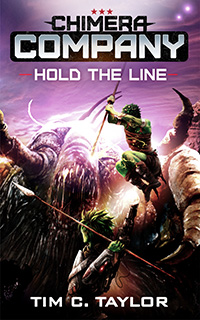
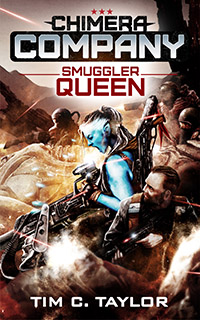

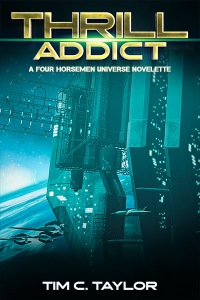
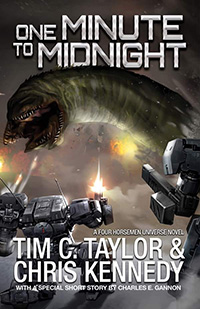


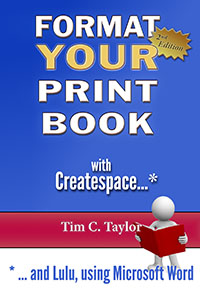

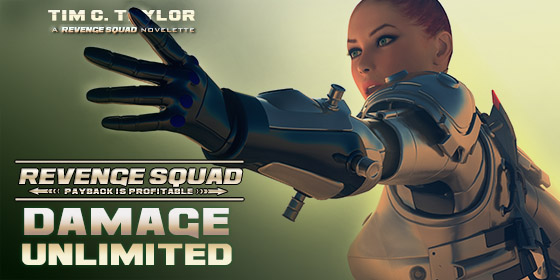

Great series, Tim. Looking forward to part 3 🙂
Thanks, Andy. It just needs tidying up. Just the pesky matter of a book deadline coming first 😉
Deadlines always come first!
Pingback: SF Publishing in 2020: part 1 of 3 | Tim C. Taylor
Terrific article, Tim! Lot of useful insights here into the business of publishing, and I will be sharing this series of articles with author friends and writing groups. Perhaps you’d consider posting these to the IASFA forums?
That’s very kind, Mark. I’ll look into whether it’s appropriate to post anything in IASFA. I hope to be more active there this year. 🙂